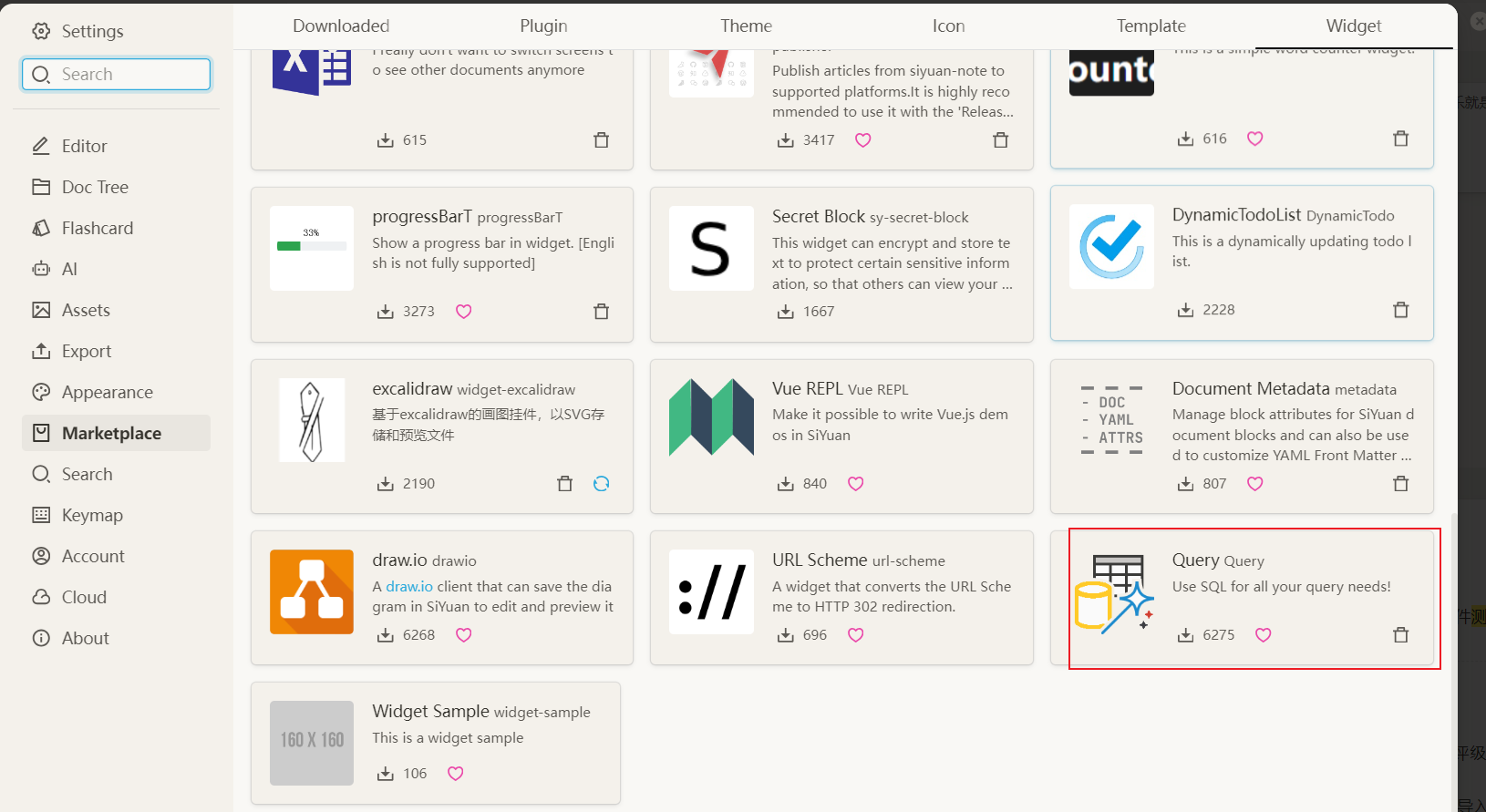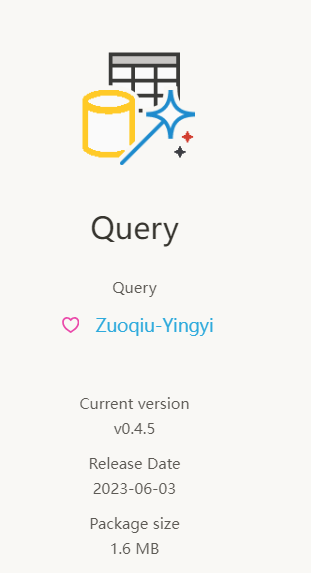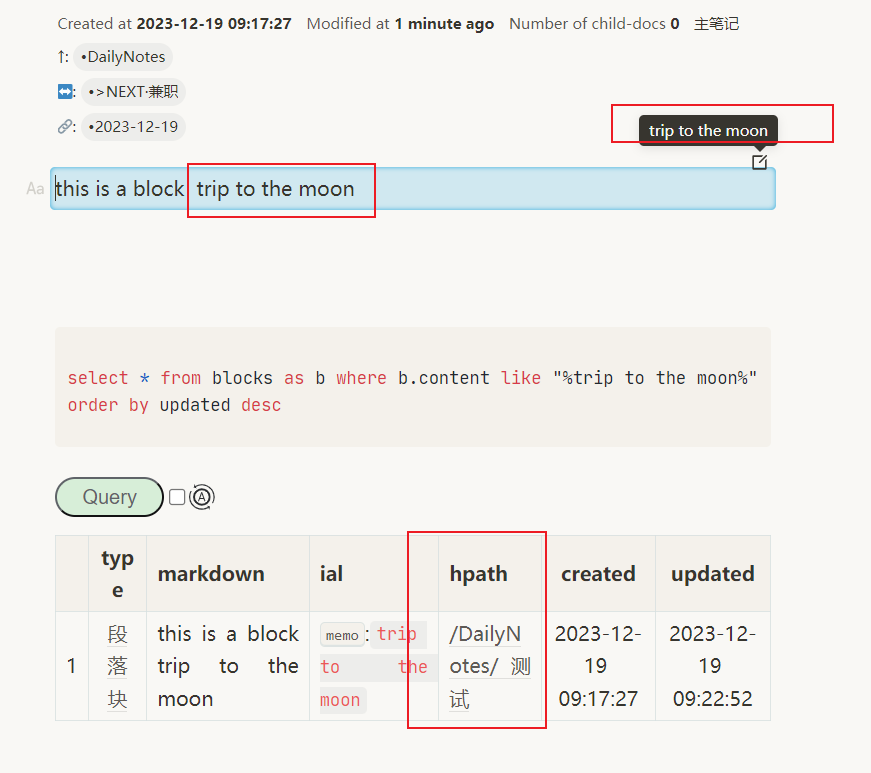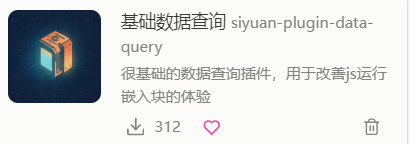Hello,
I would like to be able to use an attribute of the parent block when writing an SQL query in an embed block. For the sake of example, consider I am in the document Trip to the Moon and I want to make a query that collects links to it. I would write
select b.* from blocks as b where b.content like "%trip to the moon%" order by updated desc
But I am already in Trip to the Moon (a document or a parent block with that name), so ideally I would like to grab the current document's title/name. I would like to replace the literal string "%trip to the moon%" with something like :parent.title. How can I achieve this?





Welcome to here!
Here we can learn from each other how to use SiYuan, give feedback and suggestions, and build SiYuan together.
Signup About